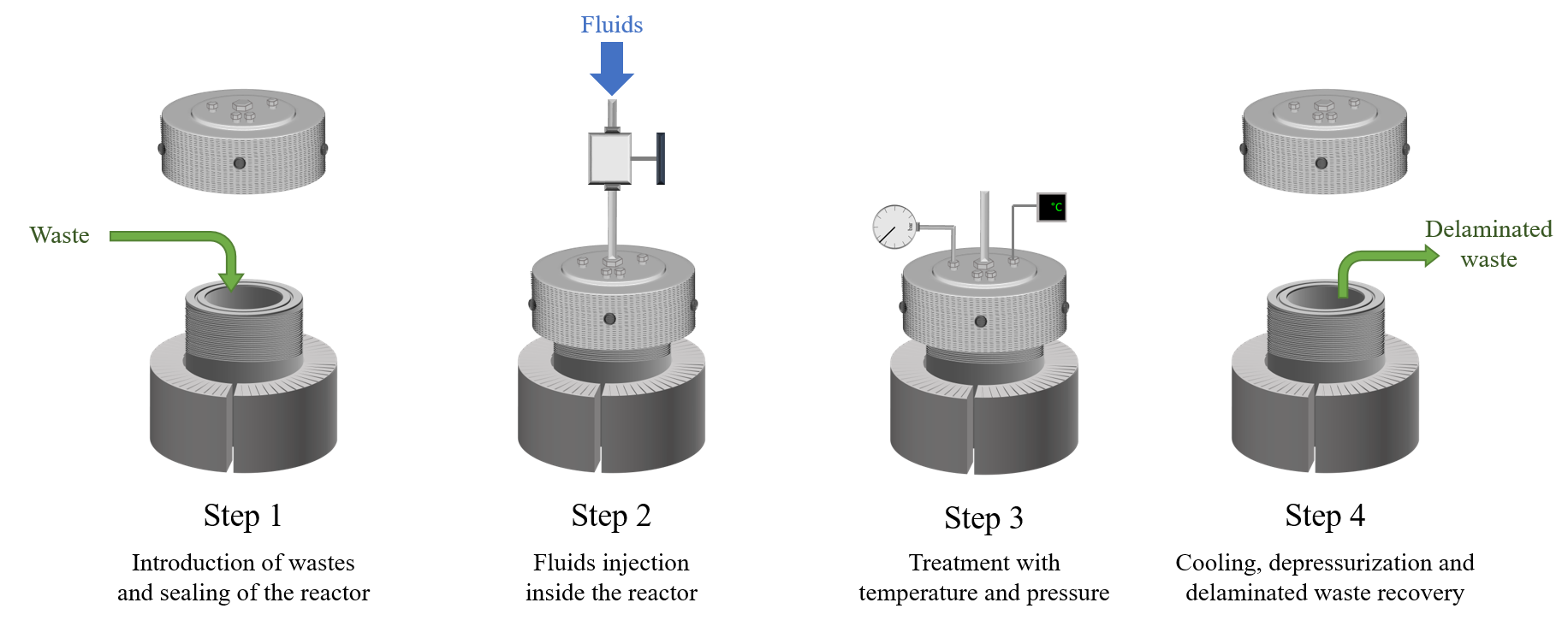What is a supercritical fluid?
By definition, a supercritical fluid is a fluid carried under conditions of temperature and pressure higher than those of its critical point. The critical point of a fluid corresponds to the temperature and pressure at which it is no longer possible to distinguish between liquid and gas.

Consequently, the advantage of a supercritical fluid is the possibility of benefiting from mixed properties between liquid and gas, depending on the conditions in which the process is set. In particular, supercritical fluids are often characterised by greater reactivity and diffusivity, and unique solubility properties, making them perfect for recycling applications.
The IDELAM process
Our process is based on the use of supercritical CO2 as the main fluid and carrier of different co-solvents that can be used depending on the products treated. The CO2 brings its properties of diffusivity and reactivity to the co-solvents, which allow the rapid dissolution of adhesives at the interfaces between materials.
The combination of the different operating parameters: temperature, pressure, time and proportions between CO2 and co-solvents allows the process to be adapted according to the properties and nature of the products to be treated.
The operating conditions of the IDELAM process are relatively mild, thus avoiding an excessive consumption of energy in the process, but also bringing a certain robustness to the treatment. Thus, our technology is not dependent on a quality or cleanliness index of the treated products, which can be delaminated without the need for pre-treatment or washing.

A good control of the process parameters also makes it possible to ensure the homogeneity of the fluid mixtures used, which greatly facilitates scale-up operations, without decreasing product treatment efficiency due to usual issues related to chemical engineering scale-up.
The current formulation of the IDELAM process already allows to treat a very wide range of different products and to optimise the conditions for a given waste. Whatever your complex waste is, it is therefore very likely that we can delaminate it to help its recycling.



